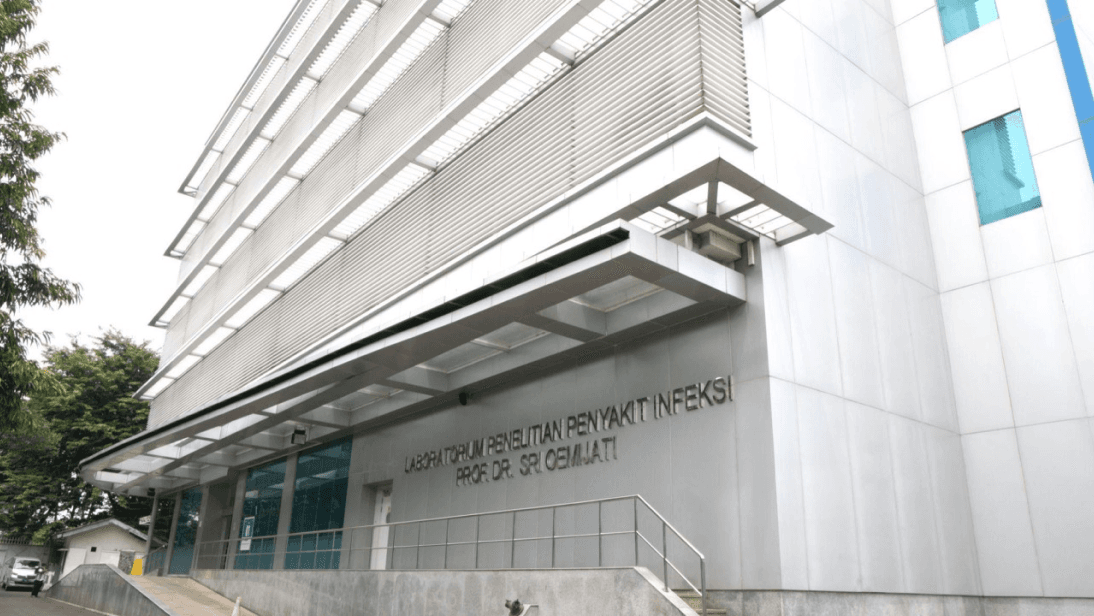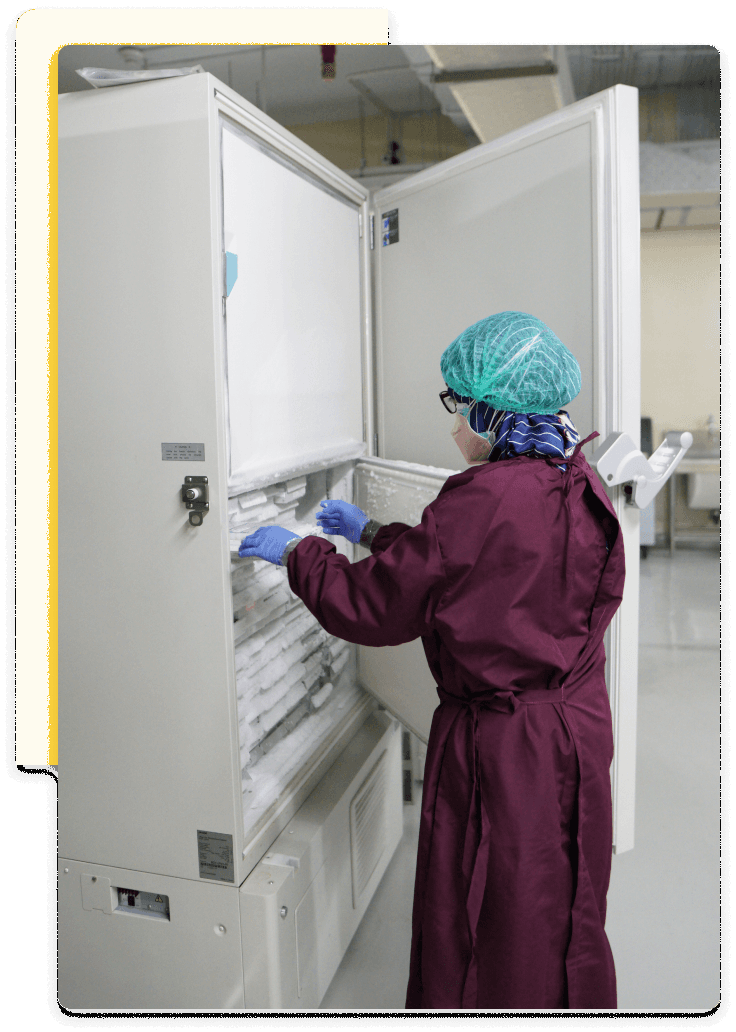Biobanking Service Unit
Overview
A biobank is a repository facility which manages and stores high quality biological specimens (blood, serum, plasma, urine, organ tissue, genetic material, and others) for future use. These samples are generally accompanied with detailed information related to the donor of the samples, for example lifestyle, clinical, demographic, behavioral and environmental information. Biobanks are critical resources for biomedical research especially in the fields of genomics and precision medicine. BGSi’s national biobank is located in the National Biorepository building of the Indonesia MoH in Jakarta.
National Biorepository as Central Biobank of BGSi (located at BKPK Jl. Percetakan Negara II No.23, DKI Jakarta)
Biological samples retrieval from ultra-low biobank freezer (under -80°C)
Objectives
BGSi aims to implement a tailored system to centralize the storage of samples collected from its extensive network of Hubs and manage this collection to support biomedical innovation in Indonesia. For this, it aims to standardize, and optimize biospecimens data management across its network of Hubs and ensure the standardization of data format by complying with MIABIS (Minimum Information about Biobank Data Sharing). The system enables seamless storage, tracking, sharing or removal of samples, and ease of reporting on the biospecimens in biobank.
Two types of biobanks will be established as part of BGSi’s activities. Local biobanks located within each of the hospitals are used to store and manage biological specimens collected by each hub. Periodically, duplicate samples from each local biobank will be dispatched to the Centralized National Biobank. This facility located in the Badan Kebijakan Pembangunan Kesehatan (BKPK) Biorepository will store and manage duplicate samples collected across its network of Hubs and will manage the sharing of these samples for research and innovation purposes with external parties.




